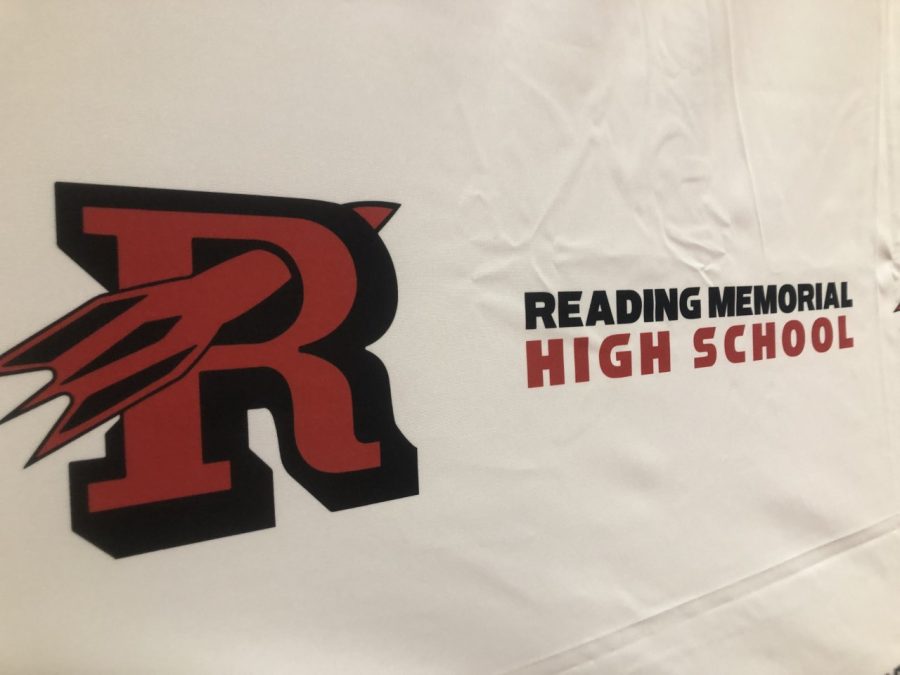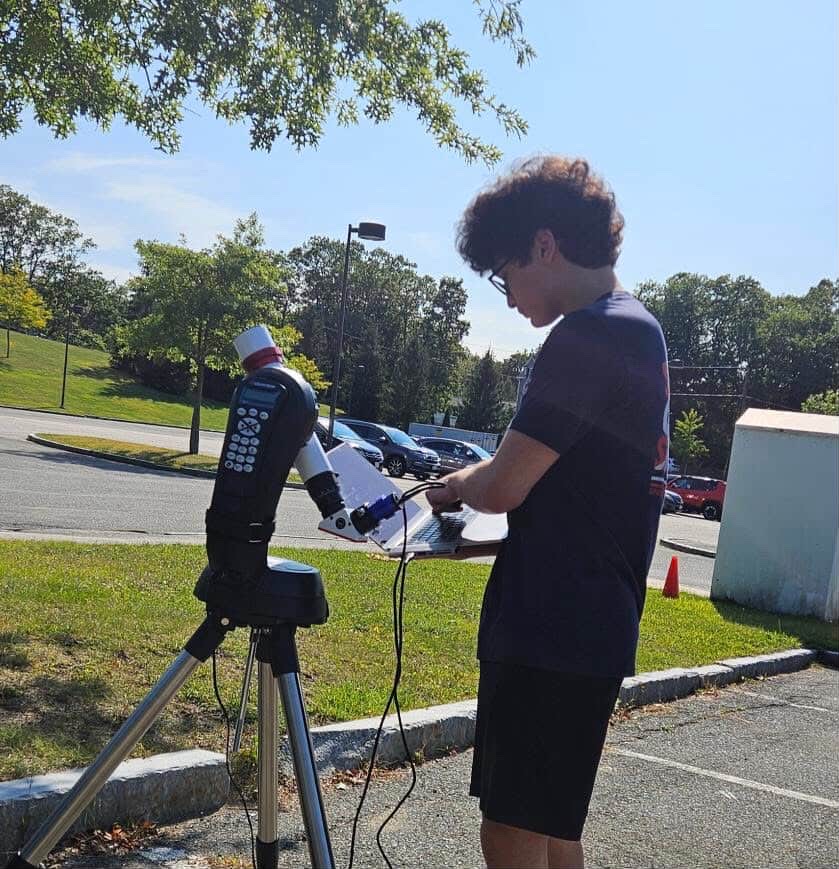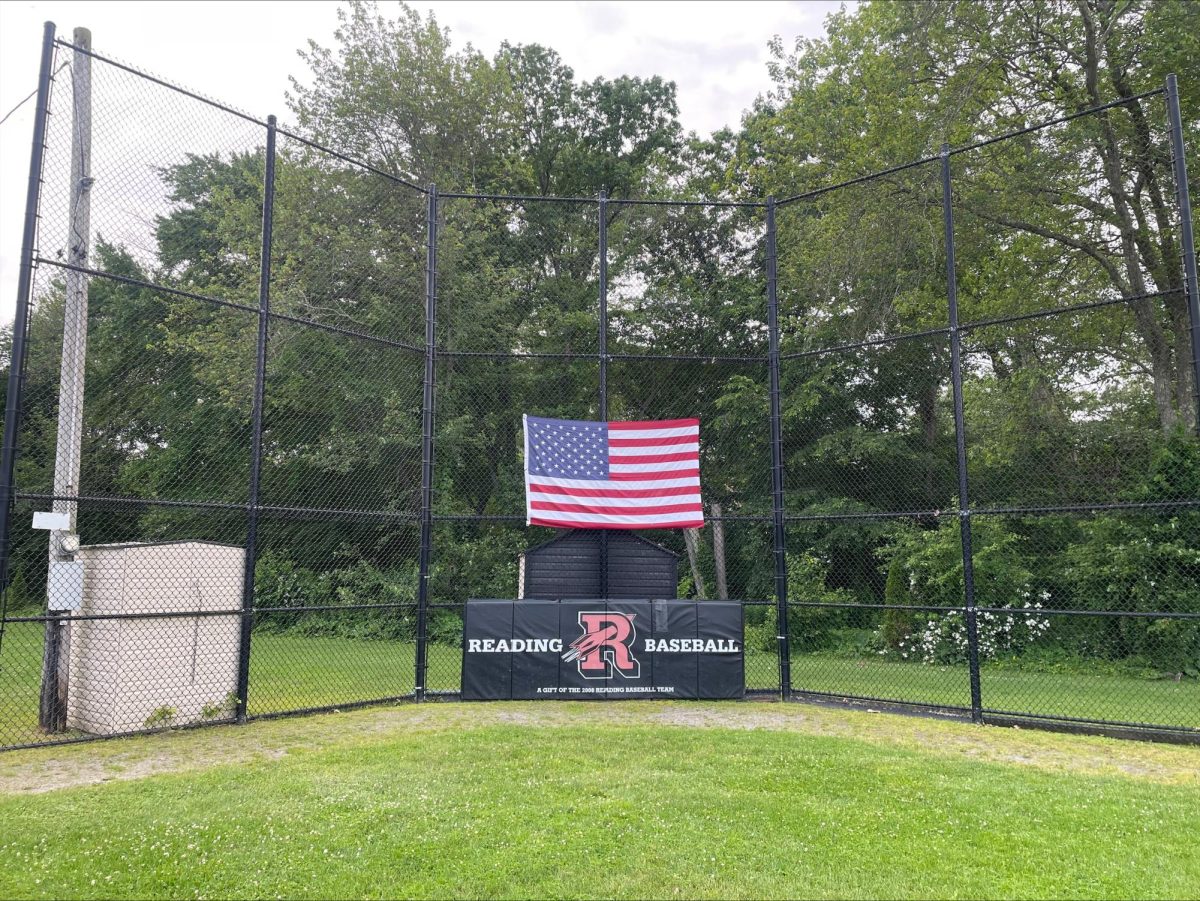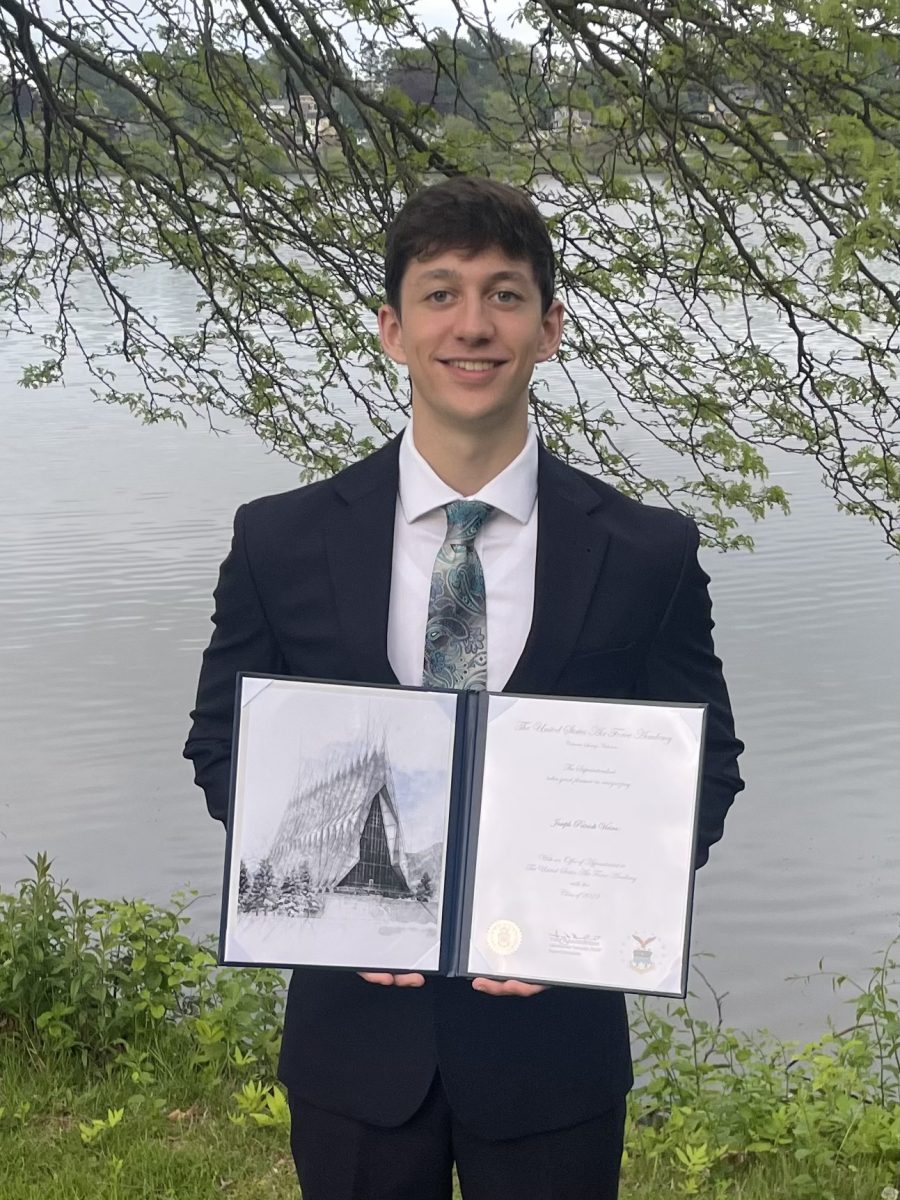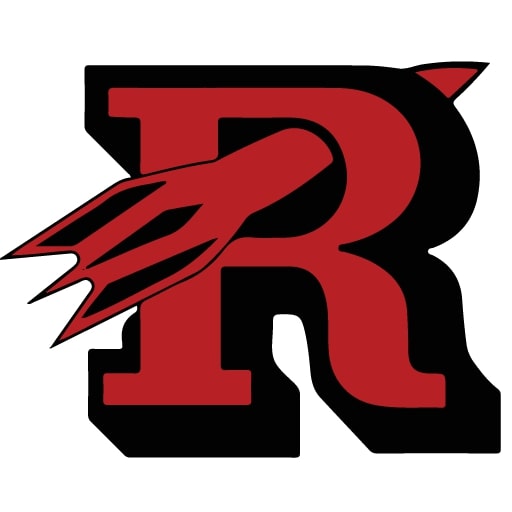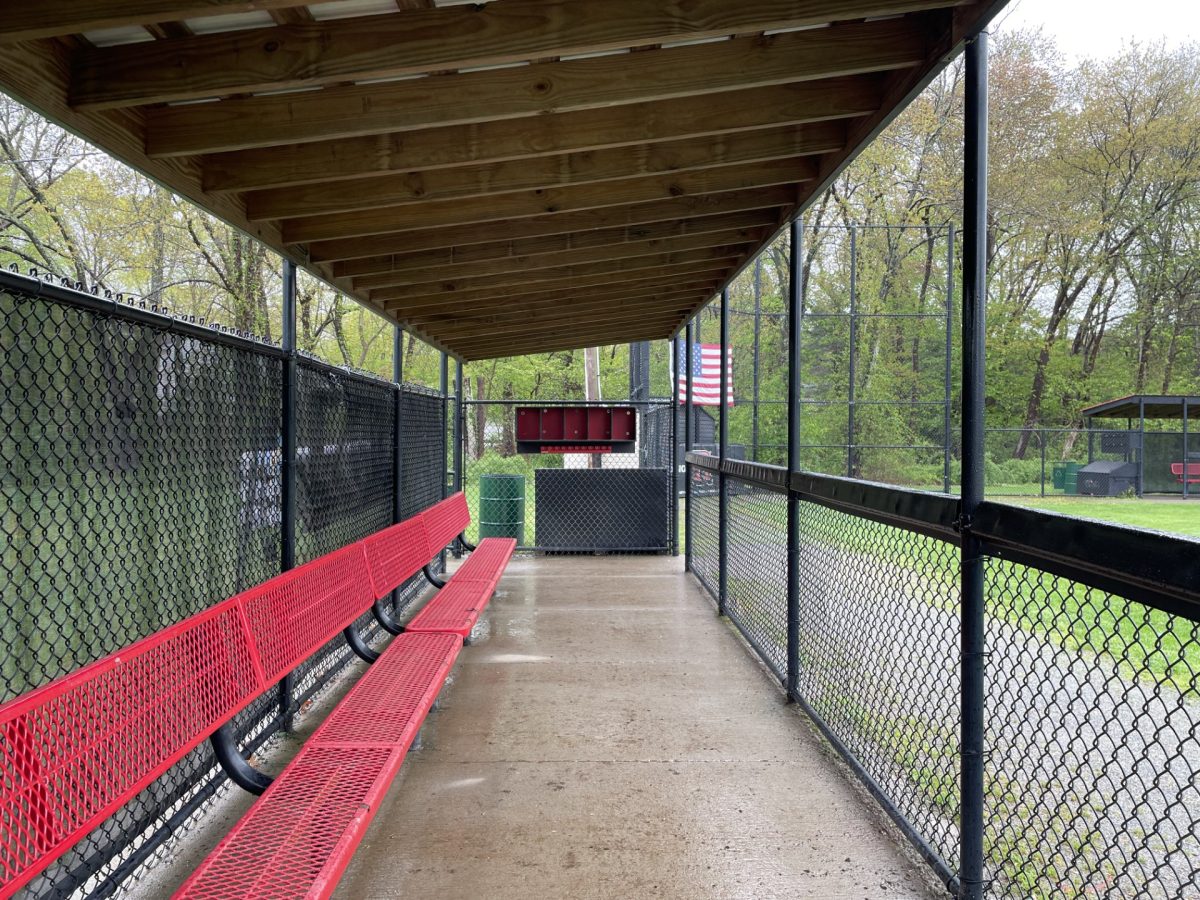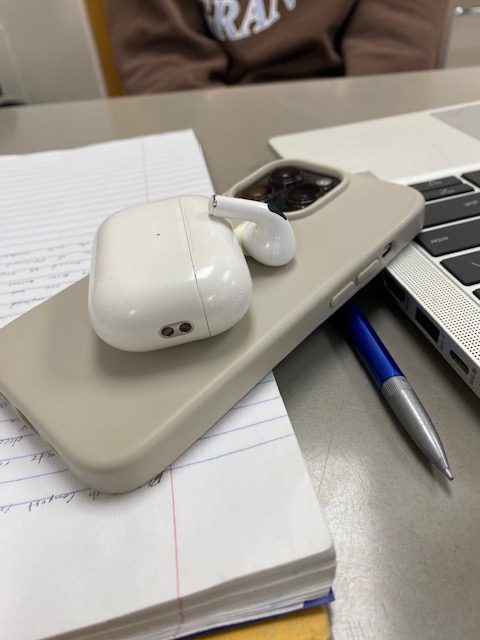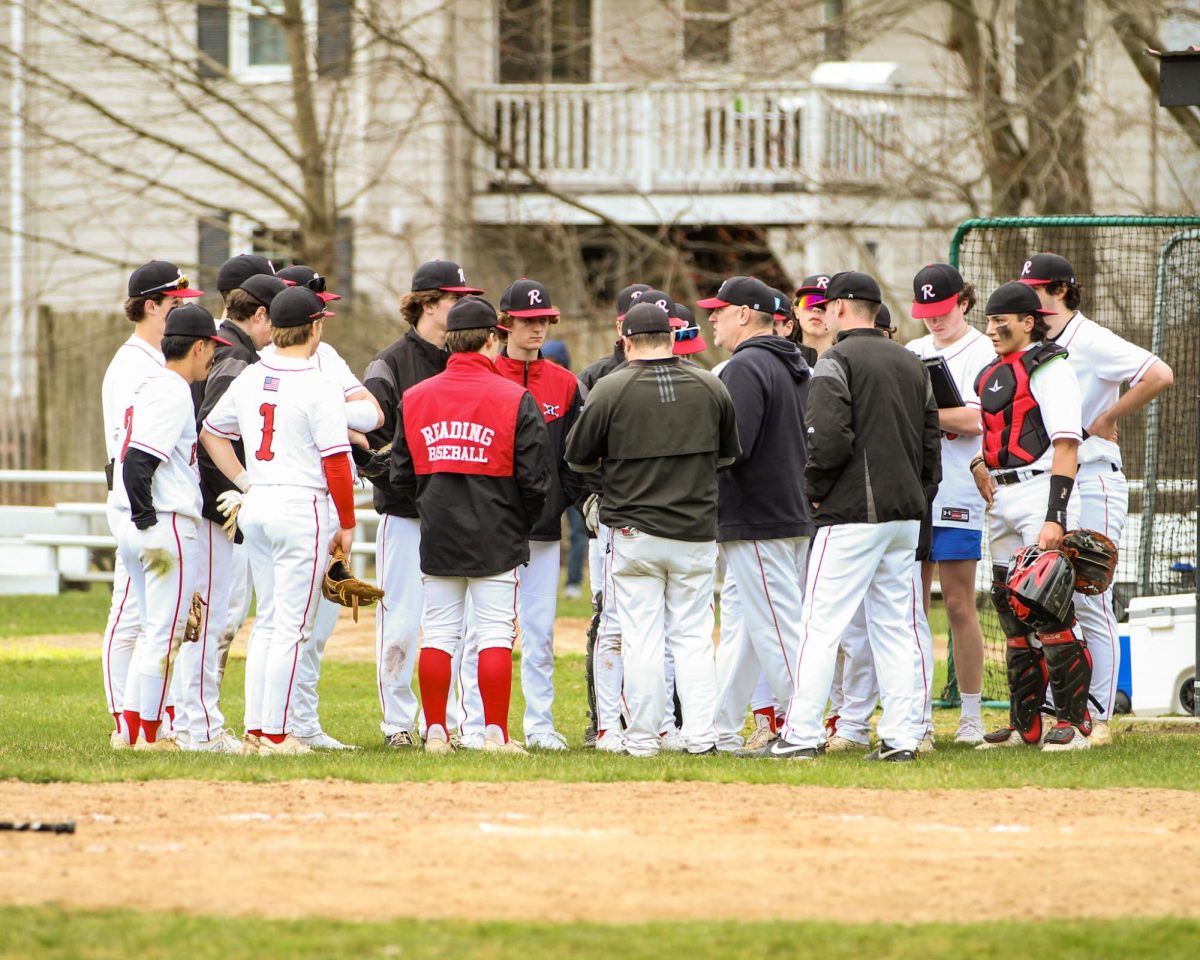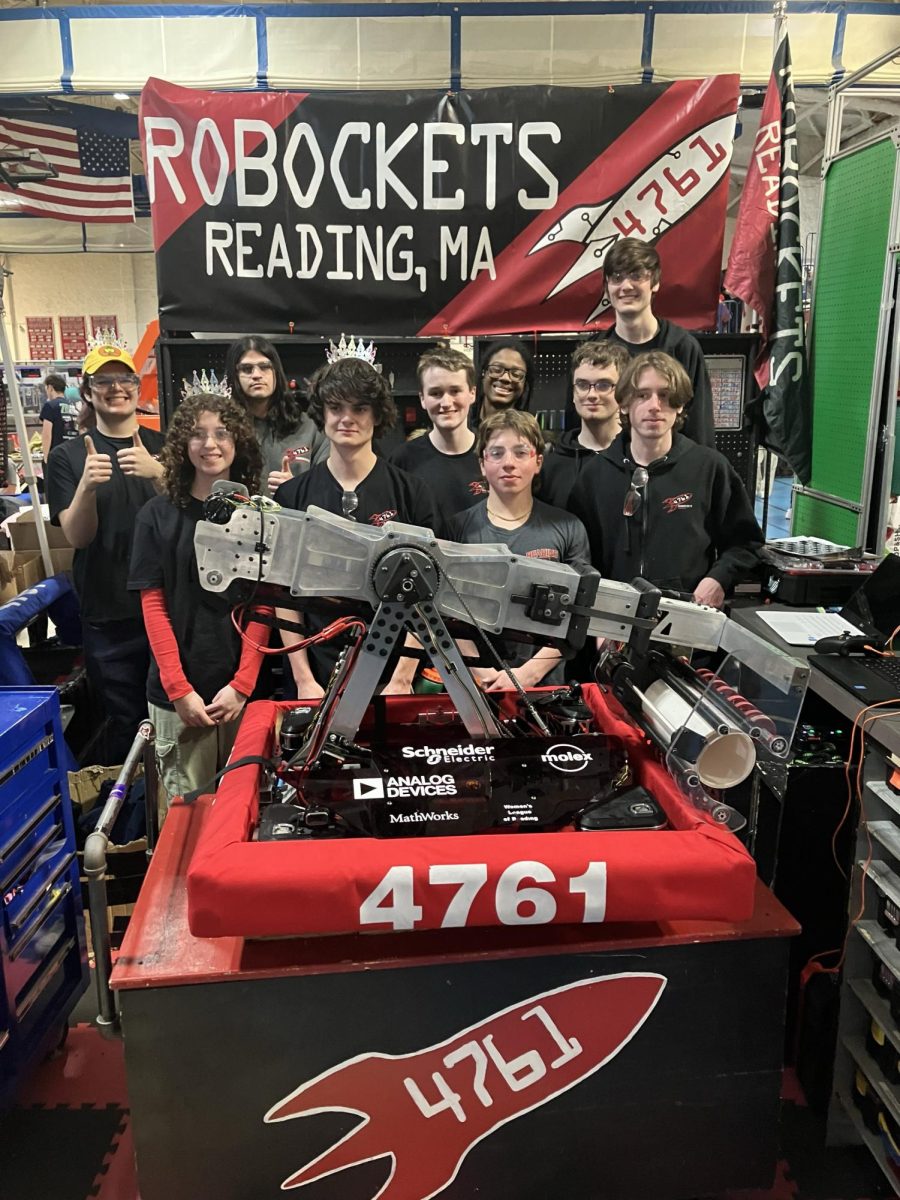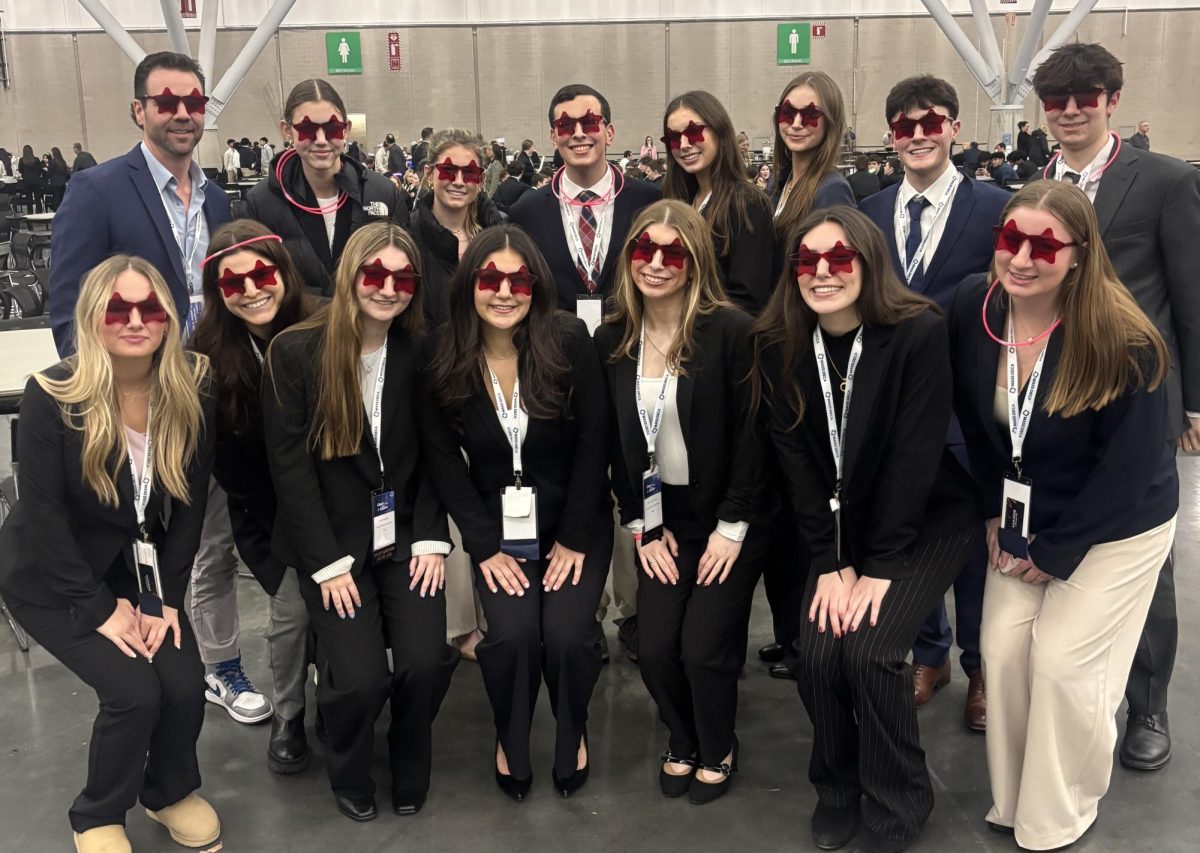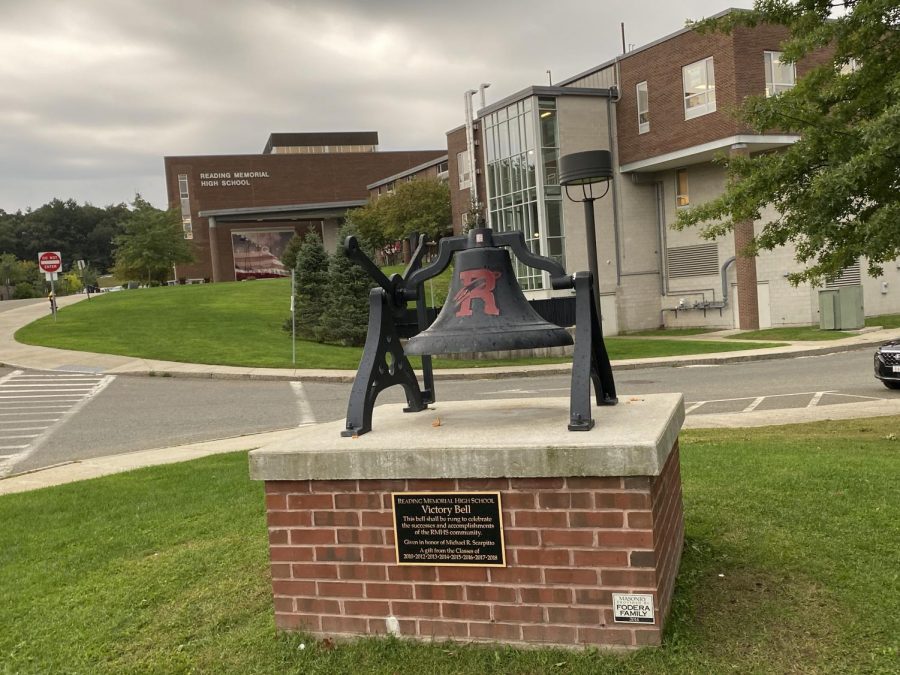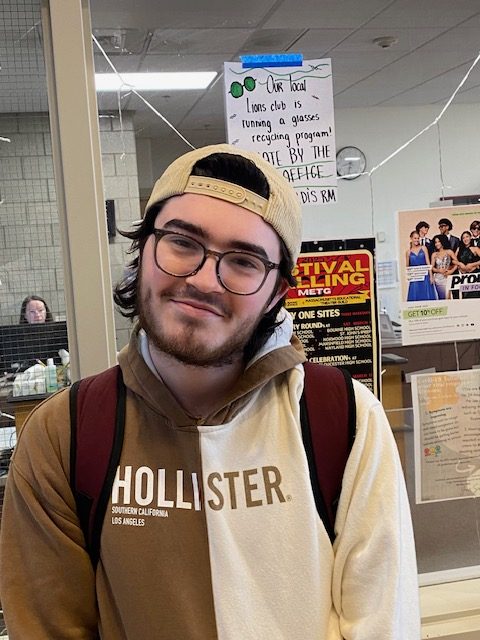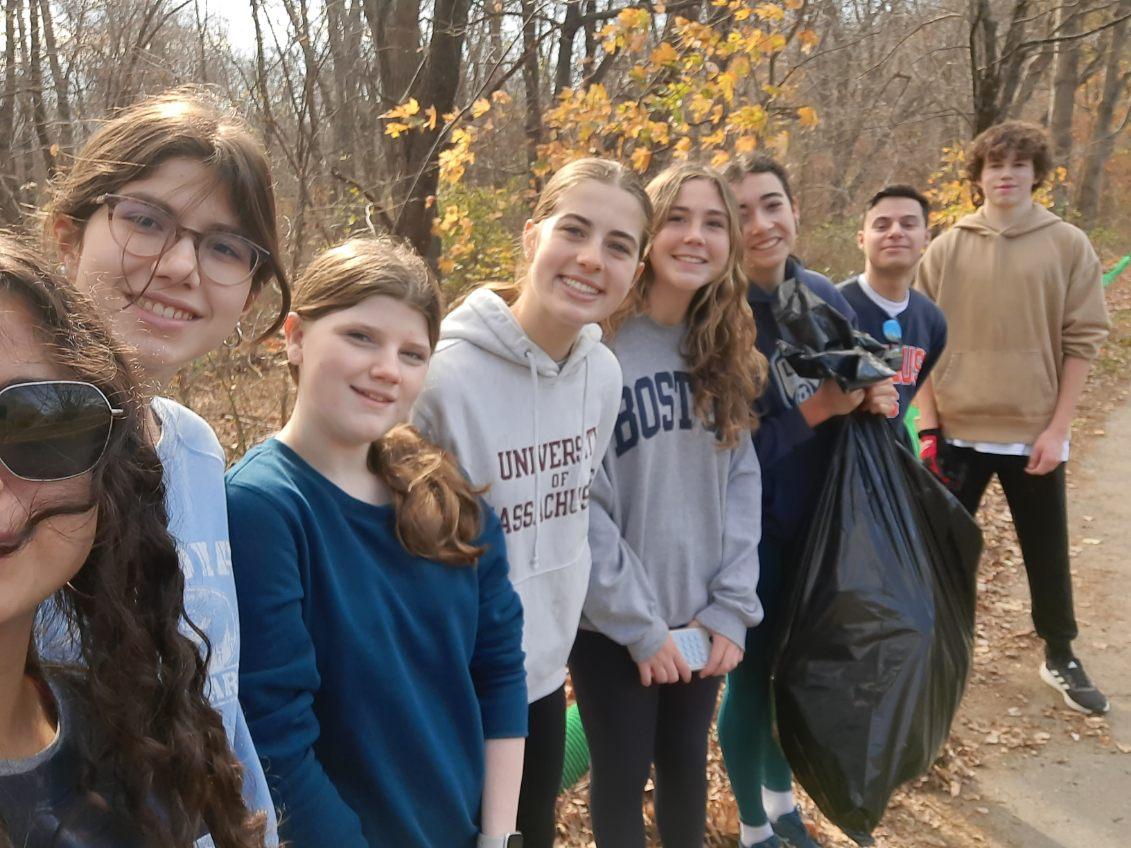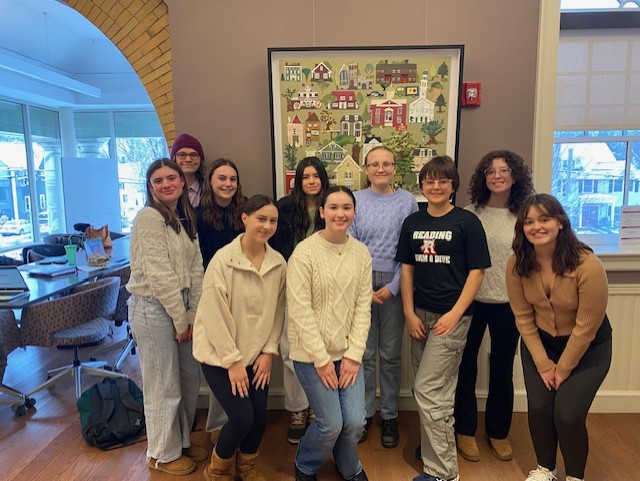Most RMHS students are aware that, during flex block on day four, the students of the EMBARC program sell popcorn on Main Street across from the Main Office. Similarly, the LIFT program, which serves students between 18-22, sells coffee and tea to teachers on Thursdays. But, many students may not be aware of why those programs exist.
According to the Reading Public Schools website, both the EMBARC and LIFT programs serve RMHS students with intellectual disabilities who need assistance with learning. It is designed to teach these students “communication skill development, assistive technology, multi-modal instruction and activities of daily living”, as well as “social skills, self-advocacy, and self determination”.
Both the EMBARC and LIFT programs use their food service sales at RMHS to help teach their students essential job and social skills.
Director of EMBARC Program explains the benefits of popcorn sales
Ms. Ayer, the director of the EMBARC program, said that the popcorn sales started three years ago when the school bought the program a popcorn machine to supplement the program’s job training initiative. There is no specific reason why they chose popcorn, “It’s just [a program] that other districts have found successful.”
The purpose of the program is to give students with disabilities an opportunity to practice their job skills. “We focus on food safety and food handling, proper washing of hands, all the things you learn if you’re working a restaurant job,” she said.
Additionally, the program teaches skills like “counting money, interacting with customers, advertising, and cleanup. Half of the kids sell each week, and then the other half do the cleanup.” She said that is particularly challenging because the popcorn machine is “super disgusting to clean,[there’s] oil everywhere, and it’s gross. And then, [students are] sweeping the floors, washing the dishes, all of that stuff.”
The money gained from popcorn sales goes back to the program, funding events like a Special Olympics track and field day, pizza parties, and summer school outings, as most EMBARC students attend school year round. “We went to Connor’s farm, we went mini golfing, we saw a movie, we tried to do fun stuff during the summer,” she said.
The program also gives students some experience in interacting with their peers and potential customers. Ms. Ayer gave an example of a RMHS student who didn’t have the money to pay for their popcorn and wanted it for free. “It’s a valuable skill to be able to advocate and say no to a peer, [even though] it’s hard,” she said.
Some RMHS students are at least somewhat familiar with the purpose of the popcorn sales.
Aiden Williams (‘26) said that he knows two EMBARC students who sit on Main Street and sell popcorn on Flex days.
Ms. Ayer acknowledged that most regular ed students “just know we sell popcorn. But I don’t know if students really know why we do it.”
However, Megan Fitzpatrick (‘25) said she at least generally understood the reason for the program and that the program is “very welcoming and inclusive to all students with disabilities at RMHS.”
Fitzpatrick said she buys the popcorn frequently to help the program. “I’m always telling my friends to buy it,” she said.
LIFT program now offers coffee delivery to teachers
Mrs. Tesoro is the director of the LIFT program, which is a transition program for students between the ages of 18-22. She said they started the coffee cart program after researching other transition programs, similar to Ms. Ayer and the popcorn program.
Students leave the LIFT program at age 22, putting them into the adult world. The goal of the program is building independence and vocational skills, so that “they have the tools they need.”
Particularly, the coffee program teaches students things such as, “making the coffee, selling the coffee, cleaning after[ward],counting the money, and figuring out how much we’ve earned.”
Similar to the popcorn program, the money generated from coffee sales goes right back into the LIFT program itself. Some of the activities and excursions are partially funded by the coffee sales like the “ First Friday bowling group, which costs money, the Regional transition bowling group, other field trips, and going out into the community.”
She also said that the coffee sales help students with skills that translate to real life, like learning to shop and cook for themselves. “We go to Market Basket on Mondays. [The coffee sales help] To buy the ingredients” for their recipes. For example, “This week, we’re making quesadillas, ”she said.
For students hoping to purchase a caffeinated drink from the cart, however, it is not currently an option. Although Ms. Tesoro acknowledges many students, “go to Starbucks and Dunkin Donuts, it’s just not something we can do” because the school is not allowed to sell caffeinated beverages to students.
Other Opportunities for interaction
In addition to the popcorn and coffee sales, there are other opportunities for students with disabilities to interact with other RMHS Students.
For example, “Many EMBARC students do recycling Club, which Miss Schuette runs,” Ms. Ayer said.
“And then we also have unified PE, which is half gen ed students and half students who are involved in EMBARC. She also mentioned “Unified Basketball and Unified strength and conditioning, which are after-school sports.”
“There’s always opportunities for RMHS regular education students to get involved with their peers with disabilities,” Ms. Ayer said.
“I’ve had student helpers who have come in and volunteered in the room during their studies. We call that reverse inclusion, because we’re pulling people into this program to help out,” she said.
She added, “We’re always looking for peers for unified PE, which is G block this year, and me and Mr. Skeffington and Jen Tesoro, the LIFT Teacher, are co-advising Best Buddies [a club that matches students with disabilities to a “buddy” in the regular ed program] this year, so kids can reach out that way to any of us to join that.”
Plans for the future
In regards to the growth of the EMBARC program, Ms. Ayer said, “We had talked about the way Flex block is this year and doing it on Tuesday or day two and day four, but the morning one’s too hard. There’s just not enough time on day two to do it.”
But, the program has expanded in other ways. It has grown and stepped out of RMHS, Ms. Ayer said. “[The EMBARC program] had a couple of [other] schools reach out to us, [like] when Birch Meadow did their PTO Movie Night, they asked if we [would] do popcorn for them. It was a great fundraiser and a great opportunity for us to give to other things in the community too.”
When thinking about the future of the LIFT program and broadening its sales to more than just coffee, Ms.Tesoro said, “Ideally we can offer, muffins, or cookies, [it] doesn’t have to be just coffee.”
Beyond the popcorn, coffee, and other structured programs, both Ms. Ayer and Ms. Tesoro are always advocating for ways to have RMHS students interact with the special needs programs. Ms. Ayer believes that the interaction doesn’t always have to be in a program and can be natural conversation.
Her advice to RMHS students who want to get involved is “Hang out with my students, just say hi in the hallway, and eat lunch with them.” She noted that “they tend to eat together because they don’t know who else to eat with.”
But, “Anyone can sit with them. They love talking to people, and they’re just gonna talk to you all the time,” she said.
